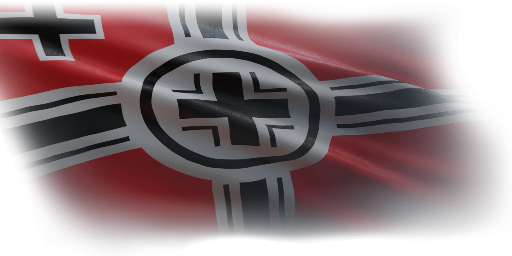
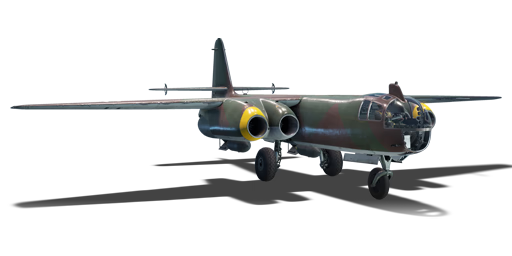


After constant reliability issues with the Junkers Jumo 004 engine, a test flight was conducted with the BMW 003 engine. Although it had less thrust than the Jumo, it was significantly lighter and helped improve the thrust-to-weight ratio. This led to a variant called the Ar 234 C. The C featured airframe improvements, better cockpit visibility, and most importantly, the addition of four BMW 003 engines, two mounted under each wing. The new engines and airframe improvements greatly increased the top speed to an astounding 857 km/h (535 mph). Unfortunately for Germany, it was in complete disarray and only a handful Ar 234 Cs were produced and even fewer were in active service.
The Ar 234 C-3 was introduced in Update 1.49 "Weapons of Victory". As with all bombers, the Ar 234 C-3 receives a bomber airspawn which is a huge advantage. Unlike the Ar 234 B, the C-3 has two MG 151 cannons mounted near the nose along with ample ammunition. This allows the C-3 to be used rather effectively as a heavy fighter, especially with the air spawn advantage. As a bomber, the Ar 234 C-3 is also good due to its high top speed along with the bomber sight. However, the Ar 234 C-3 is only able to carry up to three bombs, all of which are mounted externally which creates a huge amount of drag. Players should also be careful when diving for bases as the Ar 234 C-3 lacks any airbrake. At higher speeds, the Ar 234 compresses a lot so players using it for bombing or attacking fighters should be wary of going too fast.
flaps
flaps
flaps
brake
| Belt | Belt filling | Armor penetration (mm) at a distance: | |||||
|---|---|---|---|---|---|---|---|
| 10 m | 100 m | 500 m | 1000 m | 1500 m | 2000 m | ||
| IT/IT/APHE/HEI | 21 | 19 | 8 | 3 | 1 | 1 | |
| IT/HEI/HEI/AP-I | 27 | 24 | 14 | 7 | 3 | 2 | |
| AP-I/HEI/HEI/HEI/HEI/IT | 27 | 24 | 14 | 7 | 3 | 2 | |
| APHE/APHE/APHE/IT | 21 | 19 | 8 | 3 | 1 | 1 | |
| FI-T/FI-T/FI-T/IT/IT | 21 | 19 | 8 | 3 | 1 | 1 | |
| HEI/HEI/HEI/APHE/AP-I | 27 | 24 | 14 | 7 | 3 | 2 | |
| Name | Weight | Slot | ||||||
|---|---|---|---|---|---|---|---|---|
| 250 kg | 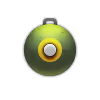 |  |  | |||||
| 500 kg | 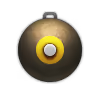 |  |  | |||||
| 1,000 kg | 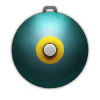 | |||||||












Flight performance | |
|---|---|
Weaponry | |
|---|---|